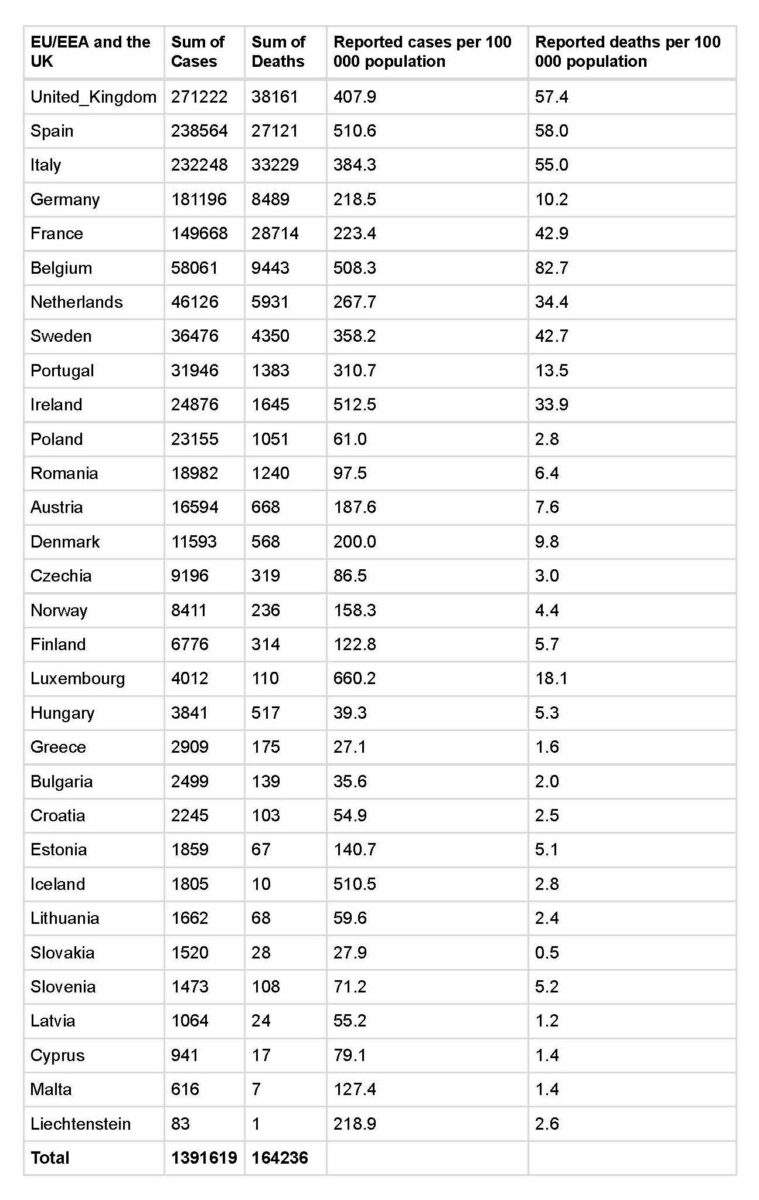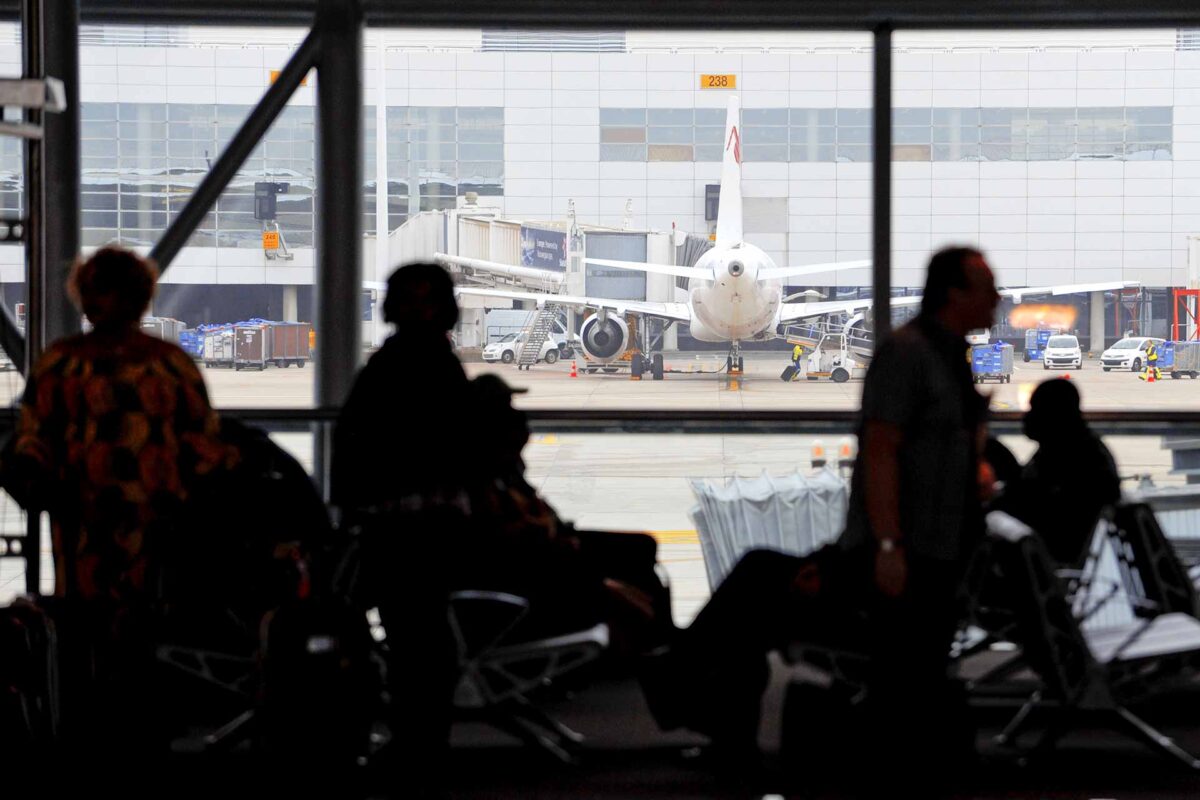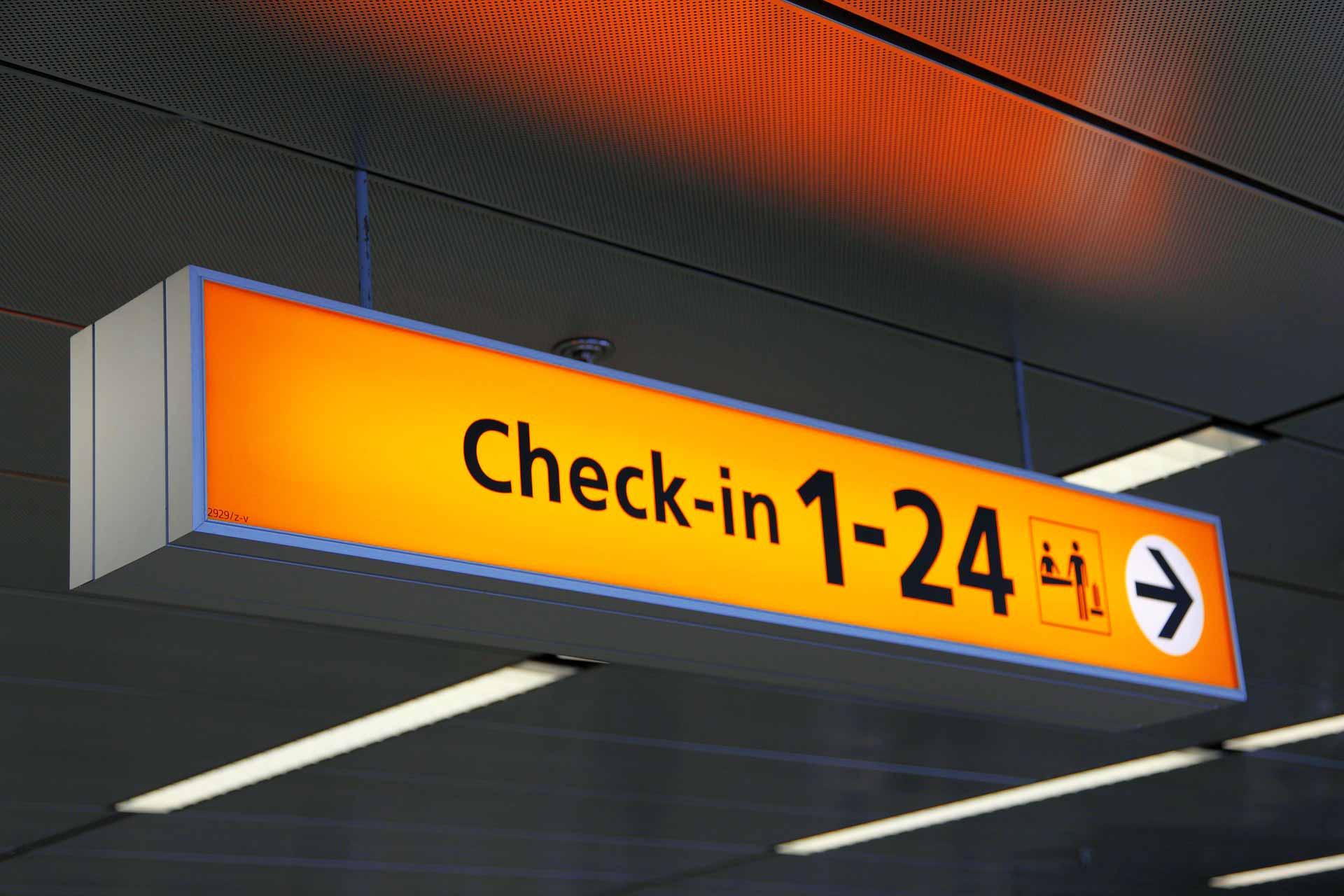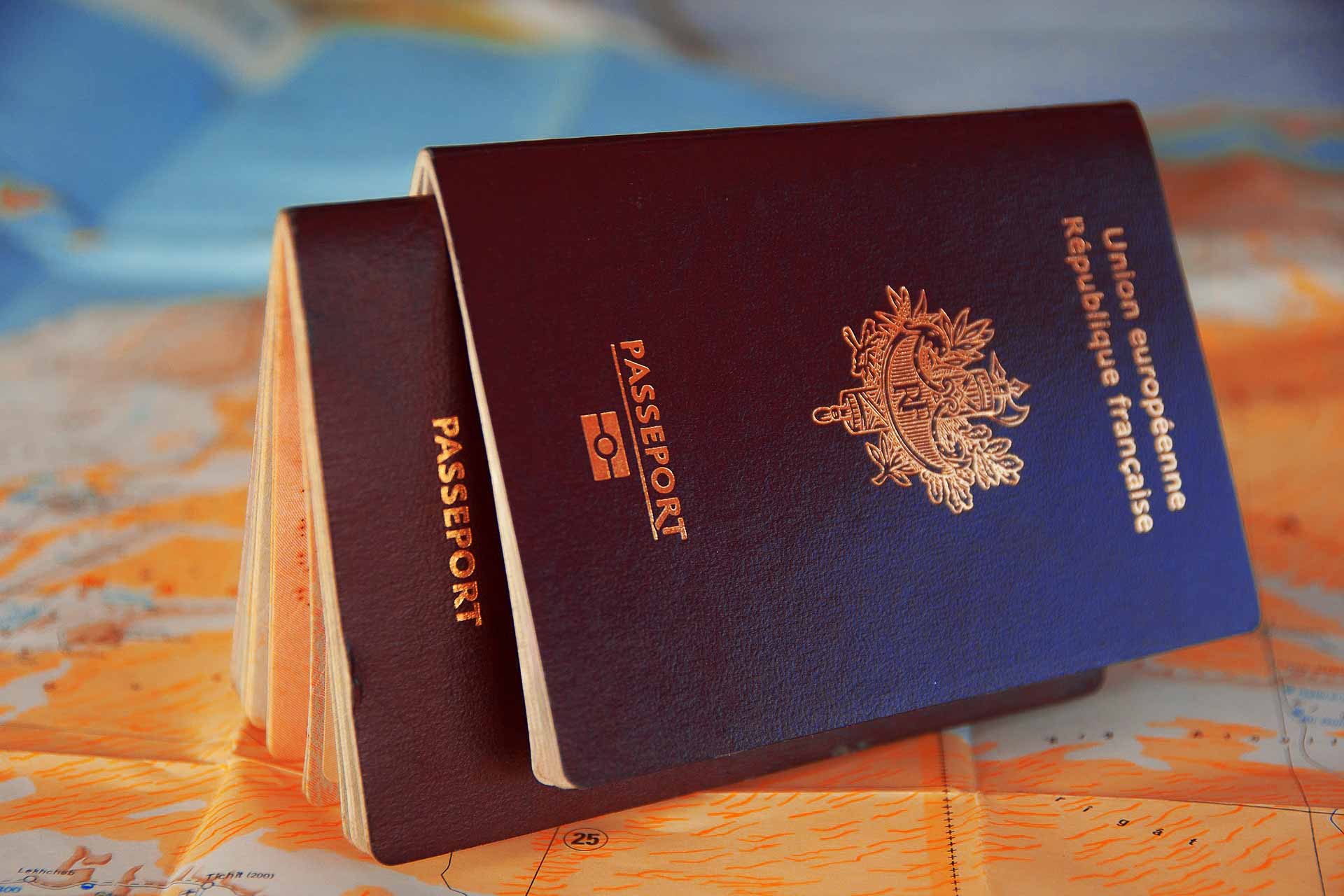The tourism ecosystem has been one of the most affected by the heavy restrictions on movement and travel imposed in the wake of Coronavirus outbreak. EU presented a common framework providing criteria to safely and gradually restore tourism activities. Developing health protocols have been delivered for hotels and other forms of accommodation, to protect the health of both guests and employees. After months of lockdown, travel and tourism could soon restart.
Safest destinations to travel in Europe – Less cases on 31/05
- Liechtenstein
- Malta
- Cyprus
- Latvia
- Slovenia
- Slovakia
- Lithuania
- Iceland
- Estonia
- Croatia
- Bulgaria
- Greece
- Hungary
- Luxembourg
- Finland
- Norway
As EU countries gradually lift confinement measures, Europeans may be able to travel this summer, provided the health situation and national restrictions allow. While people will need to take precautions and follow health and safety instructions from national authorities, the European Commission has come up with guidelines and recommendations to help EU countries coordinate the safe lifting of travel restrictions.
Safe Travel in Europe
These criteria include epidemiological evidence; sufficient health system capacity being in place for local people and tourists; robust surveillance and monitoring and testing capacity and contact tracing. These guidelines allow people to safely stay at hotels, camping sites, Bed&Breakfasts or other holiday accommodation establishments. Tourists can safe eat and drink at restaurants, bars and cafés and go to beaches and other leisure outdoor areas.
The guidelines present general principles for the safe and gradual restoration of passenger transport by air, rail, road and waterways. The guidelines put forth a series of recommendations, such as the need to limit contact between passengers and transport workers, and passengers themselves, reducing, where feasible, the density of passengers.
The full list of Countries

Safe Travel in coronavirus times
Travel, transport, accommodation, food, recreation or culture, contribute to almost 10% of EU GDP and provide a key source of employment and income in numerous European regions. 267 million Europeans (62% of the population) make at least one private leisure trip per year and 78% of Europeans spend their holidays in their home country or another EU country.
Find here the EU “blacklist” of airports to save Safe Summer holidays
Europe is home to a vibrant tourism ecosystem. The World Tourism Organisation (UNWTO) foresees a 60% to 80% reduction in international arrivals, amounting to losses of between €840 and €1.100 billion in export revenues worldwide. In Europe, the summer is a crucial season for tourism:during an average summer season (June-August) residents of the EU make 385 million tourism trips and spend €190 billion.

10 Commission recommendations for travelling safely in coronavirus times
- Book tickets and check-in online to avoid queues, when possible
- Respect social distancing during luggage drop-off, security checks, boarding and baggage claim
- Fewer passengers may be allowed on board and you might be asked to sit at a distance from passengers who are not part of your household.
- When social distancing is difficult to ensure, you might be asked to wear face masks
- Food, beverages and other goods may not be available on board
- Transport companies may install protective barriers, for example between passengers and a coach driver. You may be asked to board through the back door
- Drivers should open doors automatically at every stop, so passengers don’t have to touch buttons or handles
- Stations, ports and airports should guarantee regular cleaning and disinfection and provide sanitising/disinfecting products, including on board
- There should be appropriate ventilation on all transport
- Passengers can choose between refund or rerouting for cancelled tickets. If the transport company offers a voucher, you still have the right to ask for a refund
Is it safe to stay in hotels?
Guests in hotels and other types of accommodation should respect social distancing when in common areas, as well as infection prevention and control measures such as coughing or sneezing into a paper tissue or bent elbow, hand hygiene and face masks.
Regular Cleaning and Disinfection
Tourism facilities should provide guests with clear information and guidance prior to arrival and should have an action plan in place in case of infection in the establishment. They should also ensure regular cleaning and disinfection of frequently touched surfaces and good ventilation systems. Hotel staff should be trained in basic infection prevention and control.
Find here the Blacklist of Airports

ECDC – Coronavirus pandemic Data
Since the beginning of the coronavirus pandemic, ECDC’s Epidemic Intelligence team has been collecting the number of COVID-19 cases and deaths, based on reports from health authorities worldwide. This comprehensive and systematic process is carried out on a daily basis. To insure the accuracy and reliability of the data, this process is being constantly refined. This helps to monitor and interpret the dynamics of the COVID-19 pandemic not only in the European Union, the European Economic Area (EEA), but also worldwide.
Every day between 6.00 and 10.00 CET, a team of epidemiologists screens up to 500 relevant sources to collect the latest figures. The data screening is followed by ECDC’s standard epidemic intelligence process for which every single data entry is validated and documented in an ECDC database. An extract of this database, complete with up-to-date figures and data visualisations, is then shared on the ECDC website, ensuring a maximum level of transparency.
ECDC – Coronavirus in Europe
European Centre for Disease Prevention and Control
Monitoring and assessing threats to public health in Europe from infectious diseases are core tasks for ECDC, as is providing technical support to the EU-level response to such threats. The Centre’s mission is to identify, assess and communicate current and emerging threats to human health from communicable diseases.
The objective of epidemic intelligence is to rapidly detect and assess public health events of any origin to ensure the EU’s health security. Epidemic intelligence can be described as the systematic collection and collation of information from a variety of sources, which is then validated and analysed. The aim is to ensure a timely response, based on an adequate risk assessment with recommendations on appropriate public health measures.















